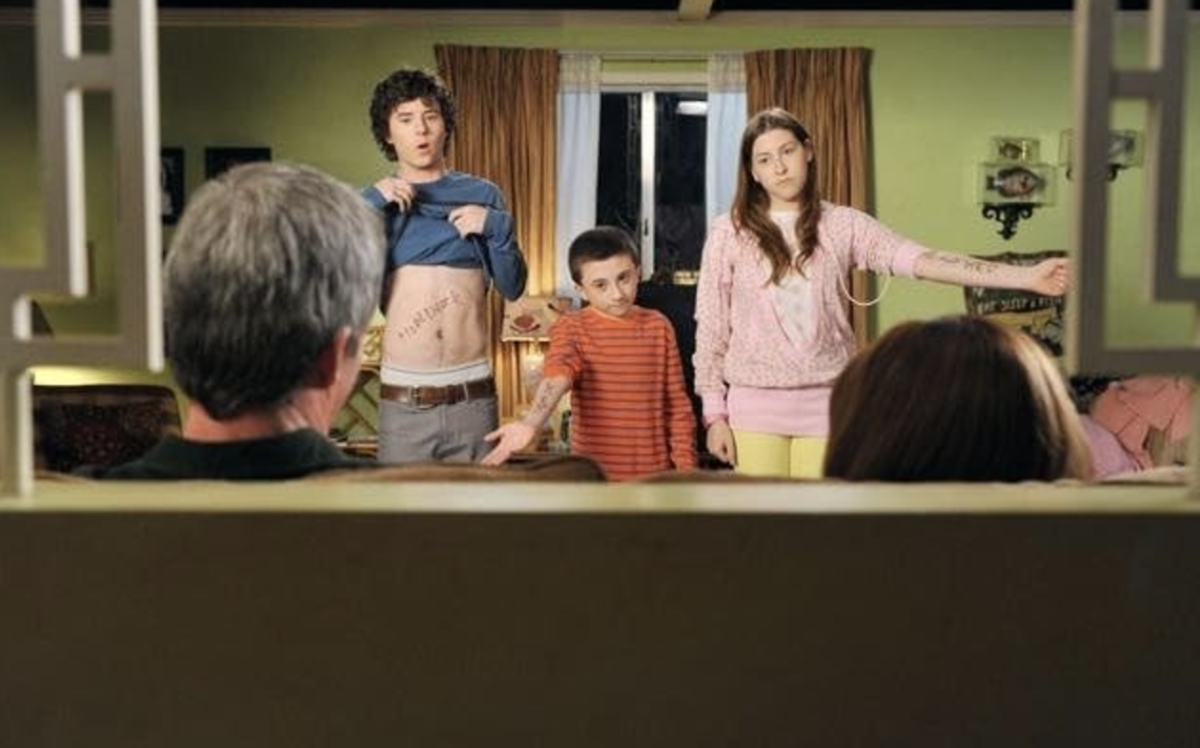
I am leaning on the register. It’s a slow day at work, so I check my phone. There’s a message in my Sketch 22 thread that stops me. I start scanning the Internet, hoping to find something to tell me it isn’t true. But I only find confirmation. I stare at Entertainment Weekly’s short breaking news post, and read it over and over again for a few minutes. The words are unchanging. Robin Williams is gone. And I am broken.
My eyes begin to water, but I choke it back. Marbles: The Brain Store isn’t the ideal environment for looking depressed. I put my smile back on, and do my best to stay peppy through the rest of my shift, but there’s a darkness that colors my mood. Later, when I’m driving home in my car, that soreness comes back. I start sobbing and can’t stop, so I stay 10 under the speed limit and stare out into the night, my vision blurred and eyes stinging.
No amount of words can encapsulate the scope of a life, and especially a career, as remarkable as Robin Williams’. Little glimmers, the moments we try to catch in our frames or on our pages are a record of sorts, but they do not provide the true depth of organic memories. I cannot capture an entire life within the binds of an article, and I will not try to. What I can impart is a series of truths. Robin Williams was a genius and an artist. The unique impression he made on me he also made on innumerable others. He bettered the worlds of filmmaking and comedy with his presence.
When I was very young, news of celebrities’ deaths always made me cry. So after thinking about it for some time, I realized why the news of Williams’ death destroyed me. This wasn’t just another public figure I would never meet. Robin Williams was an actor and comedian whose work had become entrenched in the most emotional parts of my life. After learning that he was gone, I was brought back to those times. An arc was now closed and a void had opened in its place. Some younger part of me, an inner person I knew, had died as well.
When I found out that Williams’ death was likely a suicide, a deeper, darker pain awoke within me. Over the course of the day after Williams’ death, I read a number of articles that addressed the pervasiveness of depression among comedians. The shattering point that these writers reached is that comedians have to continue making people laugh to hide a deep feeling of worthlessness. Kurt Vonnegut once said something to the effect of “laughing and crying are opposite sides of the same coin.” Robin Williams embodied that duality. He lived it. In the conversations I had or heard about his death, the understanding that persisted was that the man was his onscreen persona. You can see it in his performances and hear it in his voice. Mixed with the rapid-paced wit and spontaneity is an aching heart, a deep humanity.
When I think of Robin Williams, I see his characters. I see that squinty-eyed smile break in “Jack,” and I can remember the tears Williams’ 10-year-old character cried as he reeled after Miss Marquez rejected his offer to go to the dance. I see Patch Adams visiting deathly ill patients while wearing angel wings or a red clown nose, breaking into an energetic monologue to lift their spirits. I hear Willams’ unmistakable voice behind the animated Genie in “Aladdin,” and think of the improvised brilliance of so many of his lines.
Those moments marked glimpses of pure happiness in my childhood, but the time when I most felt connected to Williams and his work was at the end of high school. My favorite film of all time is the one that finally earned Williams his Oscar, and is the film I will most remember him by. His turn as Sean Maguire in “Good Will Hunting” glowed with humor and heart. I’ll never get over the moment of catharsis in that film, as Williams’ psychology professor breaks Will Hunting from a cycle of abuse. About a week after Williams’ death, I revealed something deeply troubling to a dear friend. When she told me, “It’s not your fault,” I felt chills.
Robin Williams left an indelible mark on comedy and cinema. He made the world laugh despite its pain. He was always mindful of that proverbial coin, and made a life balancing pathos with levity. To quote him, “You’re only given a little spark of madness, you mustn’t lose it.” I’m glad Robin Williams never lost his.
Nathan Frontiero can be reached at [email protected].


















